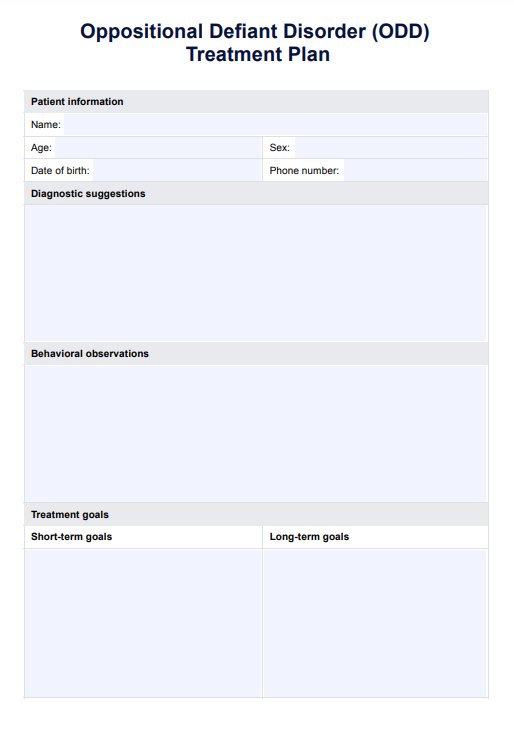The first-line treatment once having oppositional defiant disorder (ODD) diagnosed typically includes a combination of psychotherapy and parent-management training. CBT, specifically designed for the child or teenager, is a key component of psychotherapy used to address ODD. This is coupled with parent-management training, which educates parents on effective behavior management techniques, aiming to improve interactions and reduce problematic behaviors at home.

ODD Treatment Plan
Use this ODD Treatment Plan template to manage oppositional defiant disorder and improve client outcomes. Get this PDF for free!
ODD Treatment Plan Template
Commonly asked questions
CBT is widely regarded as one of the most effective therapeutic approaches for managing oppositional defiant disorder (ODD) and other mental health conditions. It works by helping the child identify negative thought patterns and behaviors and replacing them with positive ones. Additionally, family therapy can also be highly effective for addressing issues within the family dynamic, providing all members with strategies to improve communication and resolve conflicts.
As a mental health provider, dealing with oppositional defiant disorder (ODD) requires a comprehensive and consistent approach that includes implementing behavior management techniques, utilizing psychotherapy, educational support, family and parent training, and professional guidance.
EHR and practice management software
Get started for free
*No credit card required
Free
$0/usd
Unlimited clients
Telehealth
1GB of storage
Client portal text
Automated billing and online payments











